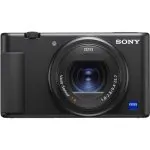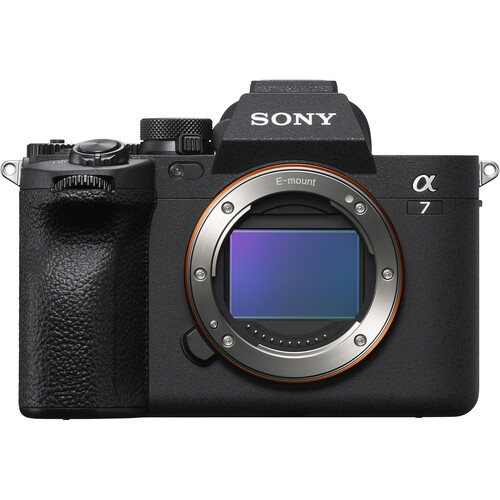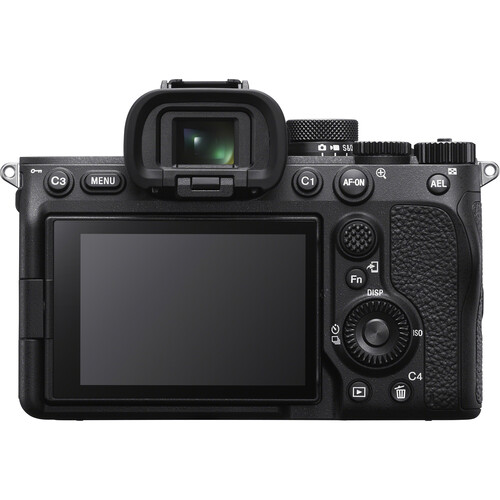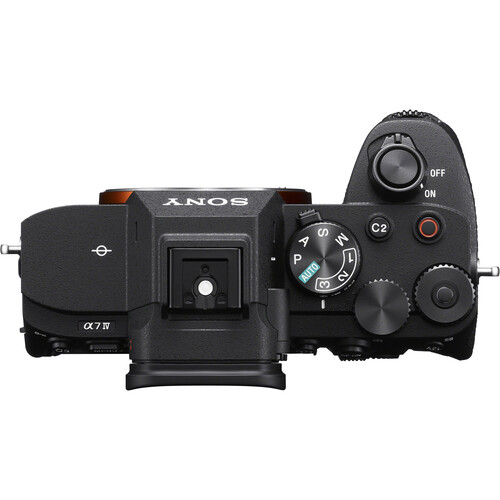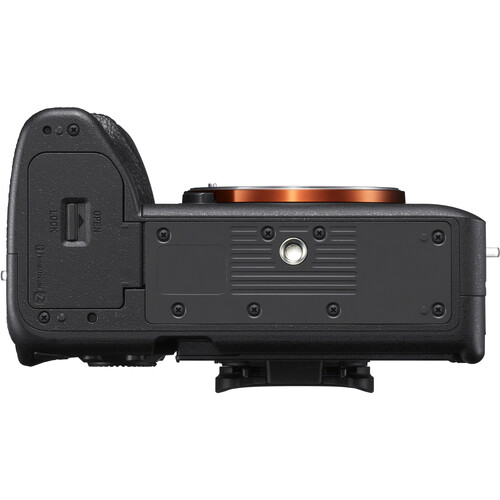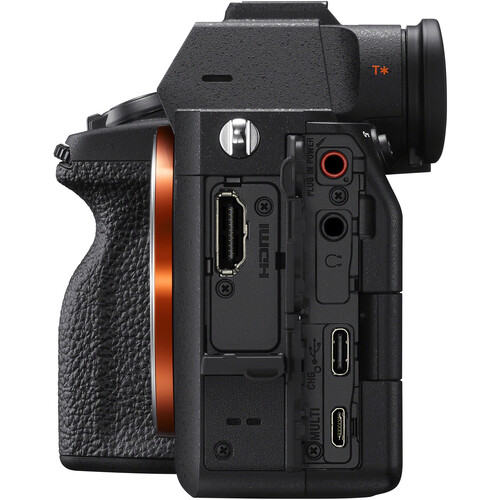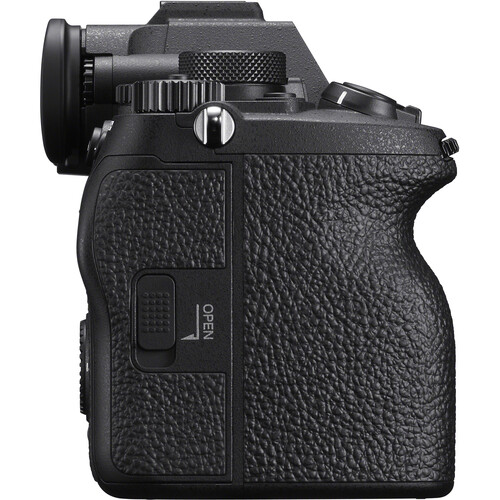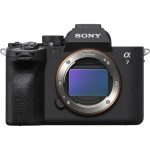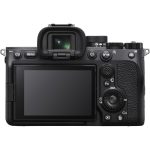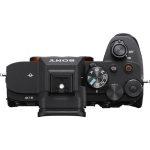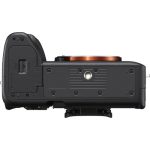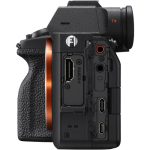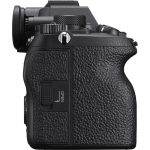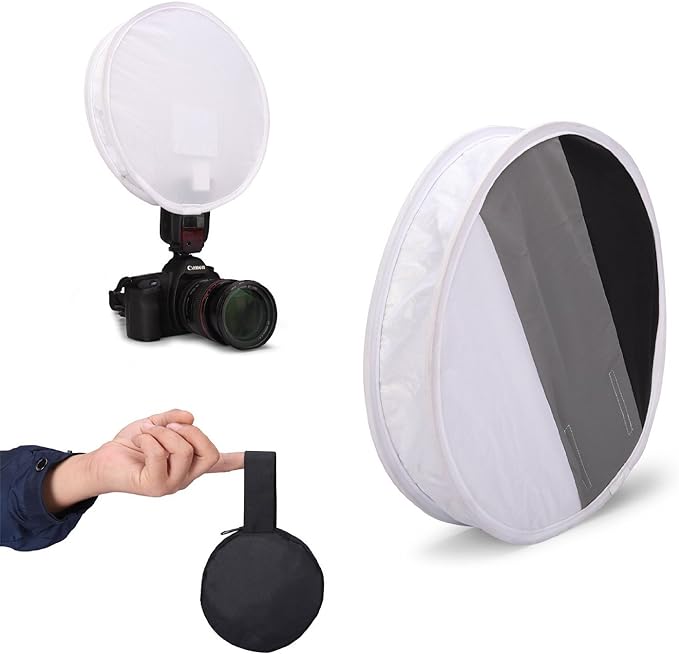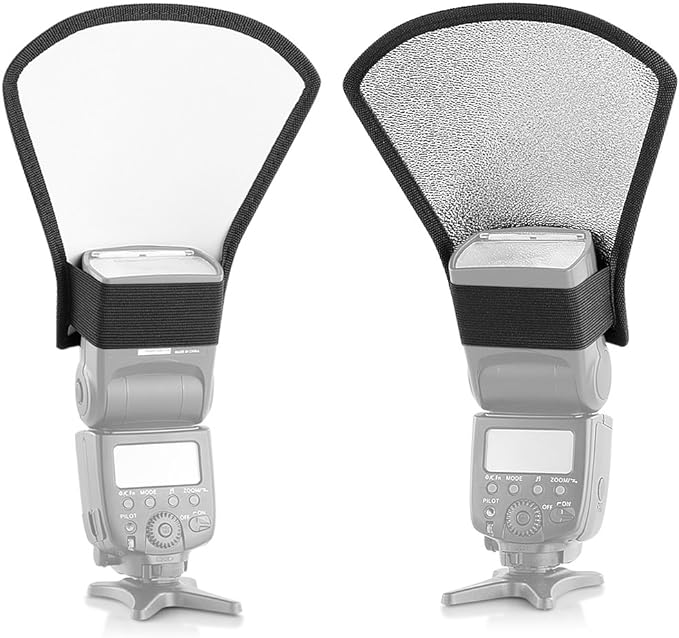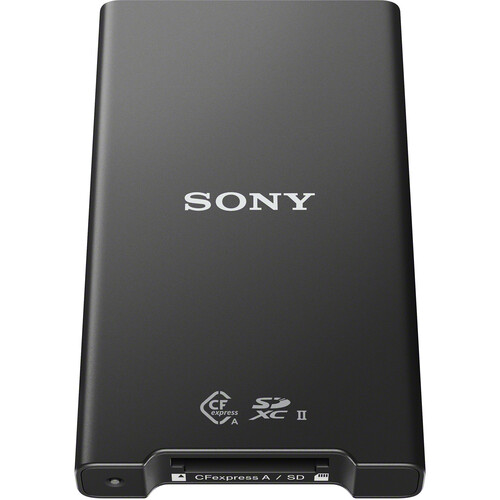
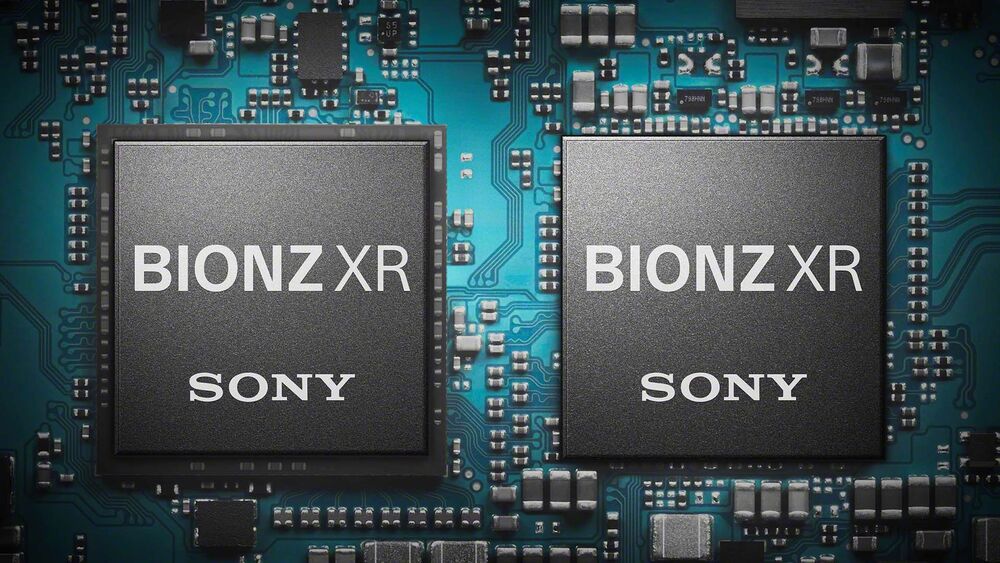
Using the flagship-class BIONZ XR engine, high-speed image processing capabilities are available for fast continuous shooting, 4K video recording, and advanced AF tracking performance. The quick processing also helps to reduce rolling shutter and other motion distortions for clean rendering of moving subjects.
In terms of shooting speeds, the sensor and processor enable up to 10 fps shooting, using either the mechanical or electronic shutter and with AF/AE enabled. Also, the buffer permits recording up to 828 consecutive uncompressed raw + JPEG frames when using a CFexpress Type A card.
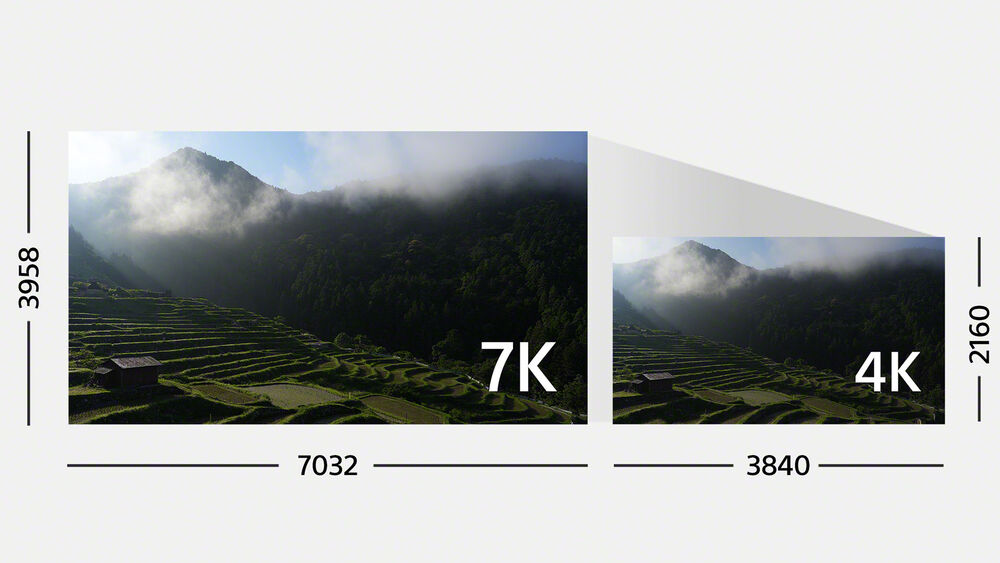
- Making full use of the high-resolution 33MP sensor and fast processing capabilities, UHD 4K 30p XAVC HS 10-bit recording is possible using the full width of the sensor, offering 7K oversampling for impressive sharpness and realism.
- There is also oversampled 4K recording, via a 4.6K capture area, with a Super 35 crop, that offers UHD 4K output up to 60p in 10-bit.
- No recording time limit allows for unlimited clip lengths and the camera’s physical design features an improved heat-dissipating structure to promote longer possible recording times; longer than one hour of continuous 4K 60p 10-bit 4:2:2 recording, for example.
- The a7 IV employs a pair of codecs to suit different workflows: XAVC HS, which uses HEVC/H.265 encoding to retain more detail at smaller bitrates and XAVC S-I, which is an intraframe codec for consistent performance and quality at bitrates up to 600 Mb/s.
- S-Cinetone can be used to deliver distinct colors and healthy-looking skin tone rendering that matches the FX9 and FX6 cameras, along with the a1 and a7S III, and is based on technology from the professional Cinema Line cameras, such as the VENICE. This color profile offers natural mid-tones, soft colors, and especially well-controlled highlights.
- HLG (Hybrid Log-Gamma) support permits recording within a wide color gamut for producing HDR-ready content directly from the camera.
- S-Log3 is also available for producing a 15+-stop dynamic range with increased grading control in the shadow to mid-tone regions of the image.
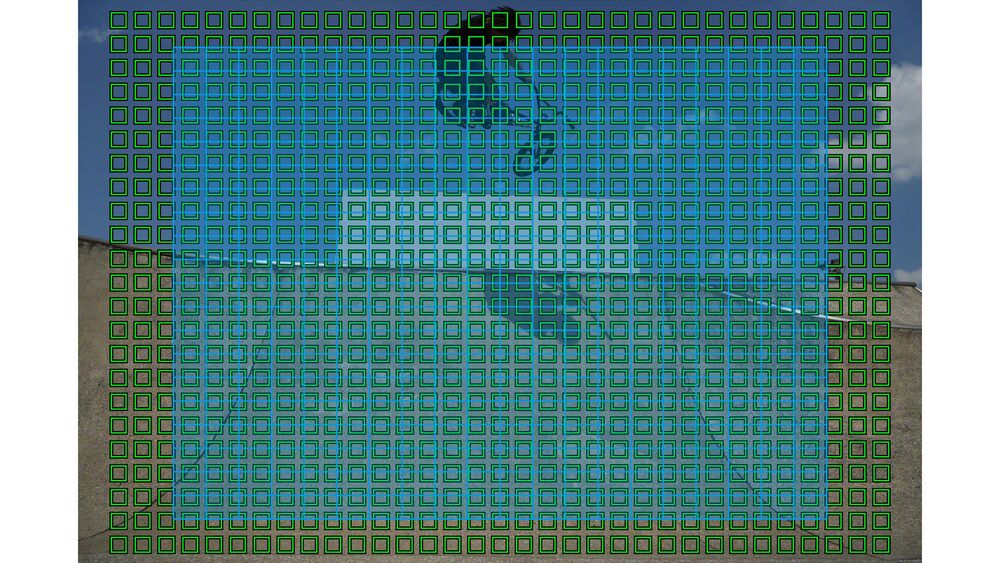
Borrowing from the flagship AF system, the a7 IV has tuned tracking and subject detection capabilities that lock onto subjects quickly and refines focus accurately on recognized eyes and faces of subjects:
- Real-time Tracking is an AI-based subject recognition system that recognizes color, pattern, and subject distance information for high accuracy and focusing speed.
- Beyond just tracking subjects, Real-time Eye AF fine-tunes the focusing accuracy and recognizes human, animal, and bird’s eyes for critical sharpness. Real-time Eye AF even maintains focus on a subject’s eye when they leave and re-enter the frame, allowing for working in more spontaneous shooting situations.
- Real-time Eye AF is fully supported during video recording, for subject detection and tracking of human, animal, and bird eyes while shooting.
- For more control over how focus shifts appear during recording, seven-step AF transition speeds and five-step AF subject shift sensitivity controls let you refine how quickly focus shifts from point to point and how smoothly focusing shifts occur.
- Focus Map is a unique way of visualizing depth of field and functions in a similar way to peaking with a colorful overlay of the scene that indicates which parts of the scene are in front of and behind the focus point depending on the chosen aperture.
- A feature carried over from the FX6 digital cine camera, AF Assist lets you intuitively switch over to manual focus control for adjusting focus position when working with AF. This is a quick way to shift selective focus between various subjects in a scene while recording.
- A unique solution to compensate for how certain lenses perform when racking focus, Focus Breathing compensation will automatically smooth focus transitions and maintain a consistent field of view when changing the focus position during a shot. This mode crops into the image slightly and corrects for any detected shifts in composition when focusing is happening. This function is compatible with select E-mount lenses, check Breathing Compensation lens compatibility here.
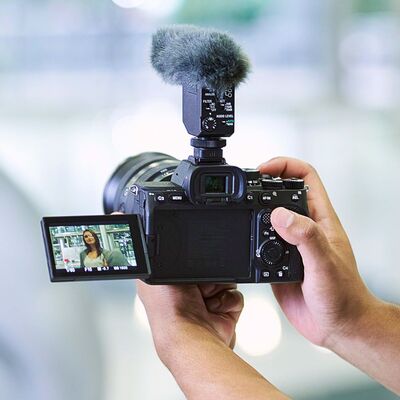
- An improved QVGA OLED Tru-Finder EVF features a 3.68m-dot resolution that is approximately 1.6x higher in resolution than its predecessor for sharper, clearer viewing. This viewfinder supports both standard 60 fps and 120 fps frame rates for smooth motion rendering and its physical design has a long 23mm eye point, 0.78x-magnification, and 37.3° field of view.
- Perfect for vlogging or other self-recording needs, the side-opening 3.0″ 1.03m-dot vari-angle articulating screen can be used in a front-facing orientation or can be tilted up or down to suit working from high or low shooting angles. This LCD is a touchscreen, too, for intuitive shooting control and menu navigation.
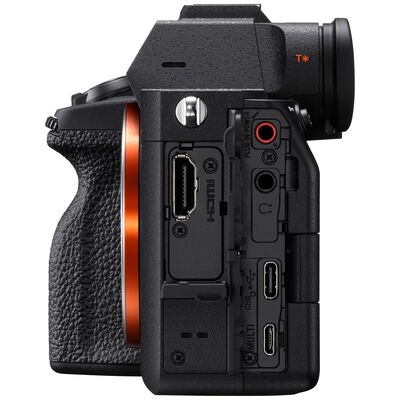
- Full-size HDMI A port offers a more reliable connection when working with external recorders.
- A USB 3.2 Gen 2 Type-C port has been added, in addition to a micro-USB port, for faster, more reliable tethering support. The USB Type-C connection allows the camera to be charged or powered from the host power source while connected.
- Both 3.5mm headphone and external microphone ports facilitate greater control over audio recording.
- Multi Interface Shoe supports working with the optional ECM-B1M Shotgun Microphone or XLR-K3M XLR Adapter Kit, which provide improved, clear audio recording sound by sending a digital audio signal to the camera, opposed to an analog signal.
- USB Type-C port can be paired with an optional Ethernet wired LAN adapter to provide 1000BASE-T connectivity, wired remote shooting, or FTP transferring.
- Enhanced 5.5-stop effective 5-axis SteadyShot INSIDE image stabilization system compensates for five different types of camera shake encountered during handheld shooting of stills and video and allows users to confidently use any lens, even adapted lenses, for critical shooting without encountering blur from camera shake.
- For long focal lengths, the system will correct for pitch and yaw adjustments. Macro and high-magnification imagery, on the other hand, will benefit from the inclusion of horizontal and vertical shift compensation. All shooting styles will get usage out of the roll compensation. All 5 axes of stabilization will function at all times, even when used with third-party lenses and adapters or lenses with built-in optical stabilization.
- Additionally, specifically for video, there is also an Active IS mode that adds even more precise stabilization methods for even smoother footage straight out of camera.
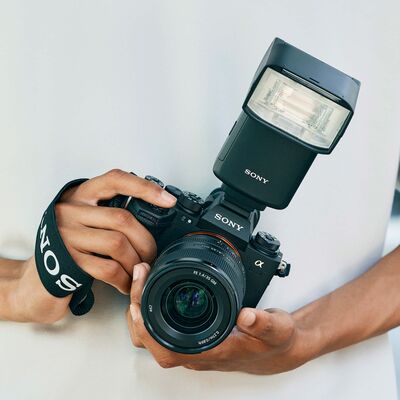
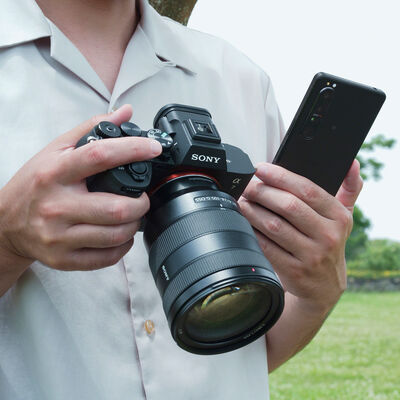
- Built-in Wi-Fi enables the remote camera control and instant sharing of imagery to mobile devices for direct sharing online, and support for both 2.4 and 5 GHz bands also enables wireless tethered shooting support. This connectivity also provides remote camera control.
- Use of the Imaging Edge mobile app is benefitted by Bluetooth to maintain a reliable connection between the camera and mobile device.
- Supports Visual Story for easy cloud-based deliver of photos and videos immediately after shooting.

- Live streaming is possible directly from the camera simply by connecting the camera to a computer or compatible mobile device via USB, allowing the camera’s video and audio capabilities to be used for live social media and video conferencing.
- 4K 15p, FHD 60p/30p, and HD 30p recording settings are available and there are also internal Creative Look and Soft Skin effects for a refined image quality straight from the camera.
- Internal recording is supported to a memory card while live streaming.
- UVC and UAC standards are supported for improved picture and sound quality during streaming.


